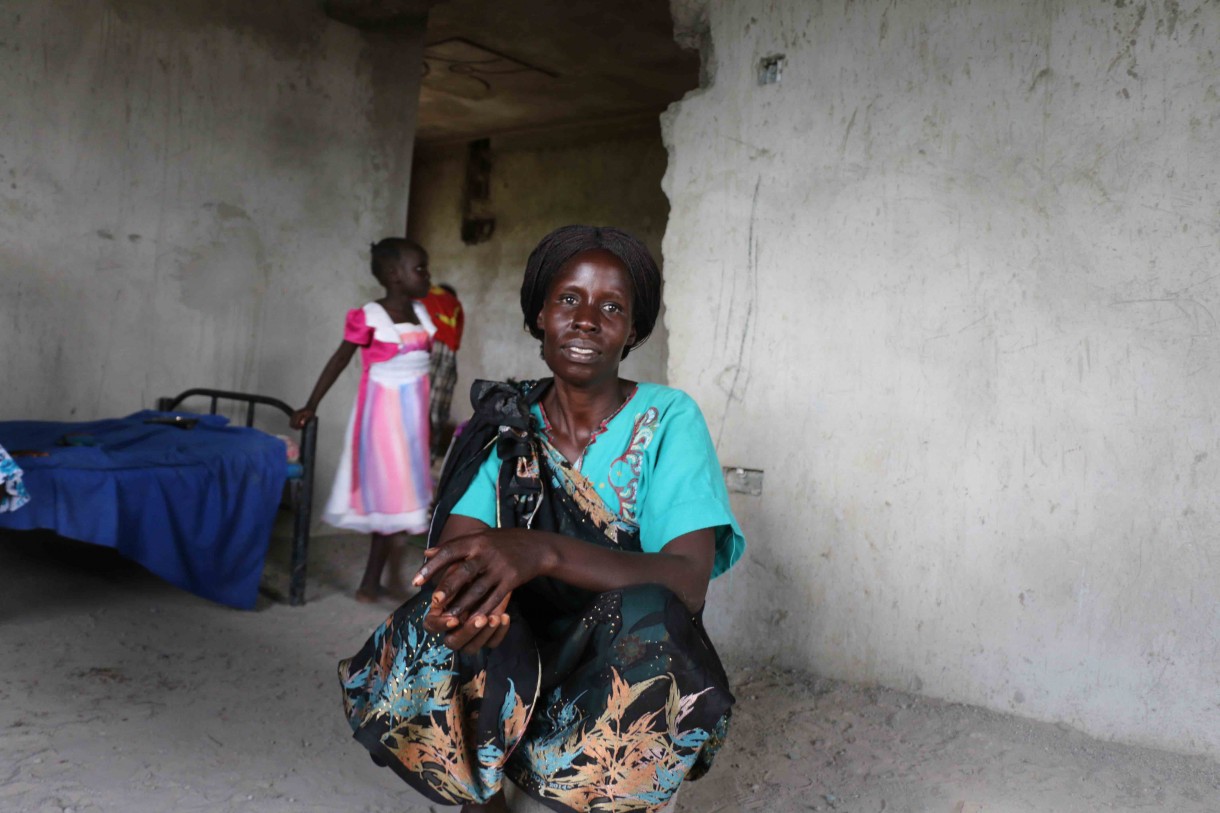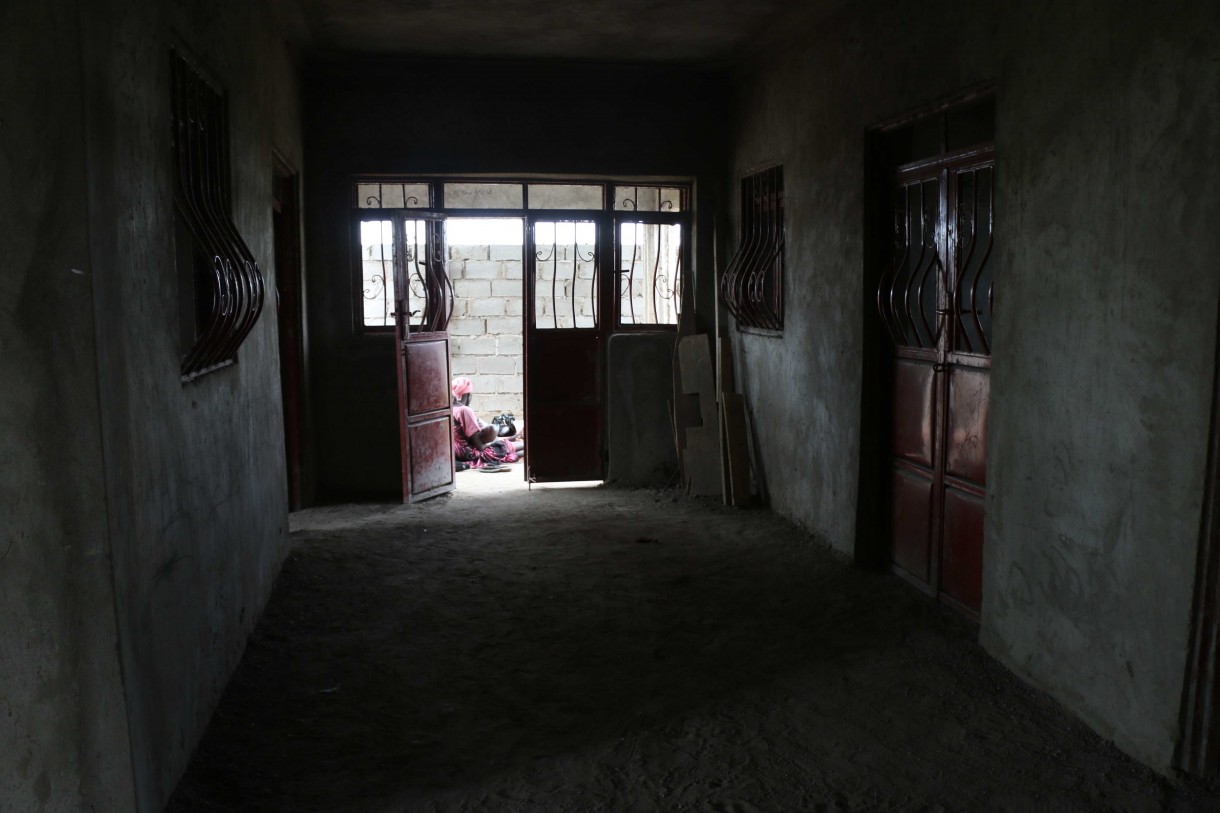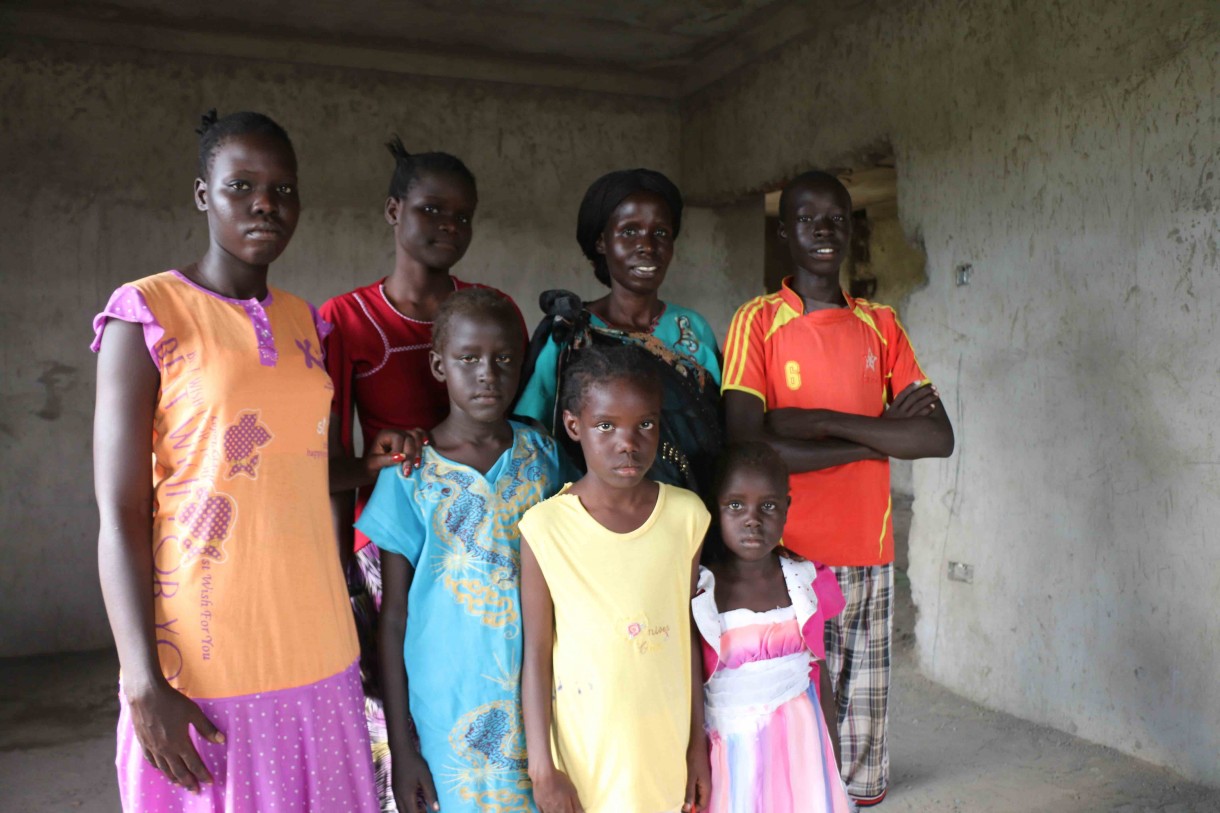My family was forced from our home by violence. But I still believe in peace.
 A woman peering into the field just outside the fence that protects people sheltered at the UN Camp for displaced people in Melut, South Sudan. Photo: Andreea Campeanu/Oxfam.
A woman peering into the field just outside the fence that protects people sheltered at the UN Camp for displaced people in Melut, South Sudan. Photo: Andreea Campeanu/Oxfam.
Eliza’s escape saved her children’s lives. Now she faces questions no mother should have to ask.
June 20 marks World Refugee Day—a time to weigh the devastating consequences of forced displacement that millions of people on our planet endure each day. Many have fled their homes with nothing but their memories: They have no means of earning a living, no way to educate their children. For shelter and food they are dependent on the good will of strangers, of host nations, of distant governments, and at any time that support could disappear. Deep uncertainty and a longing for home are the only constants.
Below, Eliza, the mother of four children and a widow who worked with Oxfam for a while, recounts her escape from Melut in South Sudan as fighting bore down on her community. The escape saved her life, but before her now are questions no mother should have to ask.
When I heard that Malakal had been taken, I knew something was wrong. People were saying that that the troops were advancing. Many people had left the area, and more were planning to do the same. That is when I knew we had to leave.
I told my elder brother that the fighting is coming to us, and we have to go. He said that he would rather stay and monitor the situation. I tried to tell him that it’s not safe to stay, but he did not change his mind. He said that I should take his children and go, and that everything would be all right. My sister and I rented a pickup truck, fit everyone we could in it, and left for Paloich on April 29.

When we arrived at the airport, it was not very full. There were women and their children in the airport waiting for a plane to take them to Juba. Some had been waiting for a week, some for two days. We registered ourselves for the next flight and lucky enough, we didn’t have to wait. There was a cargo plane leaving in a few hours. We my sister and I paid 300 ssp ($31) each for the flight. We did not have to pay for the children.
We left Paloich on April 29. The next day, the town was taken over.
When we arrived in Juba, we went to church and met some more people who had left Paloich on Saturday. They said that the airport was full when they left. Everyone was leaving. It was there that I learned that my brother had been killed in the fighting. If he had left with us, he would be alive.
It was at this point, my niece, Fardhouse, a young 17-year-old girl, fell apart. When the conflict broke out in December 2013, she was just about to start her secondary school studies. Instead she fled with her family to Renk, and then joined us in Melut. She has not been able to continue her studies since then. When she heard that my brother had died, her mental state declined. She has been talking to herself, shouting, not speaking to anyone. The war has broken her. We took her to Juba teaching hospital and they are taking care of her. All the money we carried with us, to help us survive in Juba, we’re now using to make sure Fardhouse is taken care of.

When we arrived in Juba, we stayed with my sister in law but we could only burden her for so long. Her house was already full of relatives who had also run from the fighting in Melut. I could not ask her to take care of everyone. I knew that she could not. I decided that it was time to find somewhere else to stay.
I didn’t know where to go. I thought I was out of options but fortunately, the church provided me with one. They were constructing hostels for students but could not continue because of the conflict and economic crisis. They allowed us to stay in the incomplete house until we can find somewhere else to go. It’s not what I want, but it is a roof over our heads.

After paying for the truck, the flight, medical bills, and buying food, the little money we had was finished. We had nothing. My sister had to sell her necklace for us to survive. My mother gave it to her just before she died and it was painful for her to let it go. My sister had carried this necklace with her from Renk, to Rumbek, hiding it in her suitcase, protecting it. Now she was forced to sell it.
I am the eldest daughter, and a widow. The responsibility of my family and my children is all on my shoulders. My brother used to help, but he is no longer around. I’m looking for work so that I can have some stability and send my children to school. The more time they spend out of school, the farther they are left behind. I need them to get an education so that they can have a successful life, a life easier than mine so that they don’t suffer.

I don’t know how long the money will keep us. Things are very expensive in Juba. Food is sold in small quantities, and it costs almost three times the price in Melut. Most of the time we don’t know where the next meal will come from.
I feel overwhelmed. I am trying to balance so many things in my mind – my family, my children, where to get money and food, how to get my children into a good school. At the same time, I am worried about the many people we left behind – our relatives and friends. Are they alright? All I want is for the fighting to stop; it is not a solution to anything. Peace needs to be restored.
I know I’m not alone, and I want everyone else in a position similar to mine to be strong, and most importantly to be patient. There is a time for everything. Now we’re going through a time of sorrow because of the war. Soon the time will come for joy, because there will be peace.
Around the world, tens of millions of people have been forced from their homes. Read their stories, listen to their voices, and stand with us as we aim to do what’s right. Learn more >